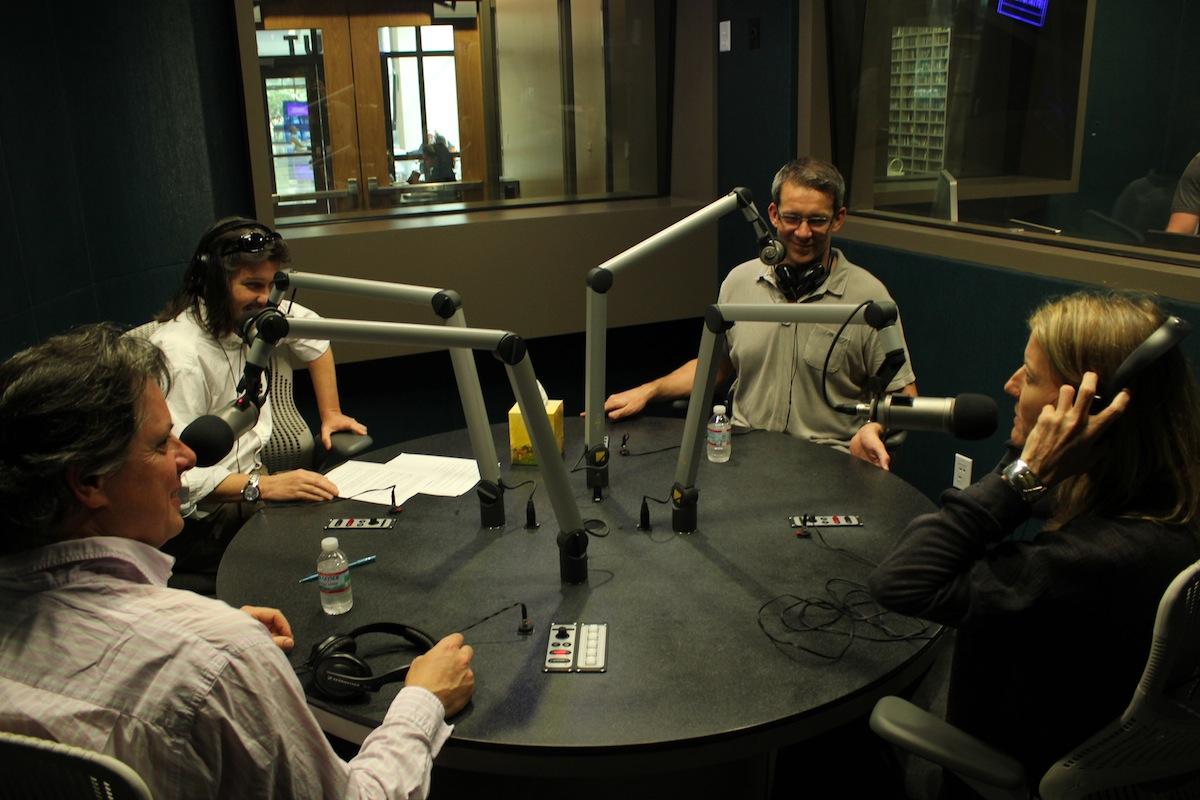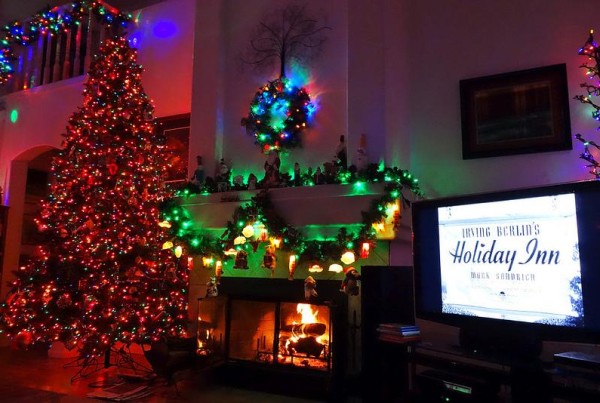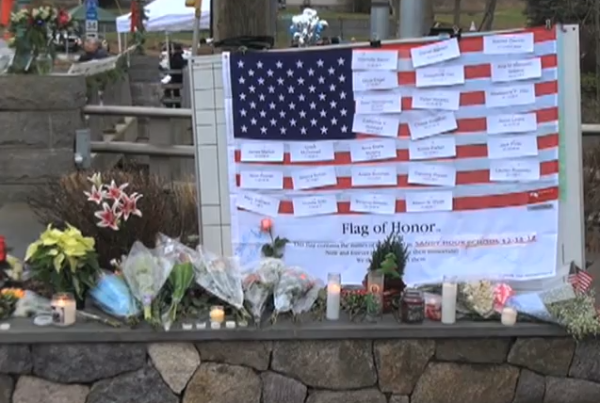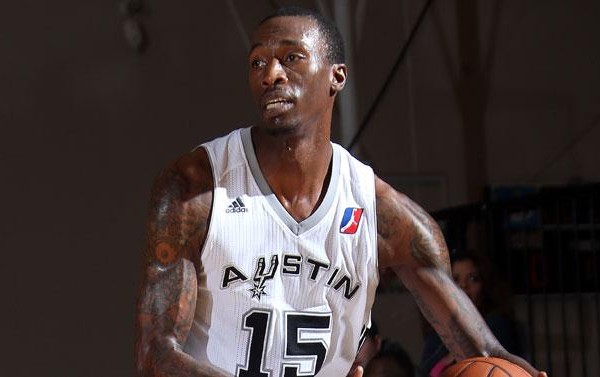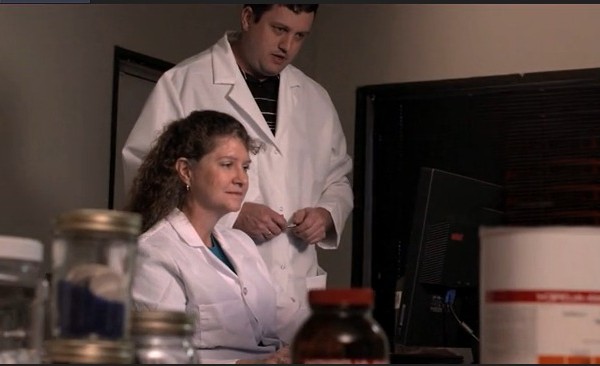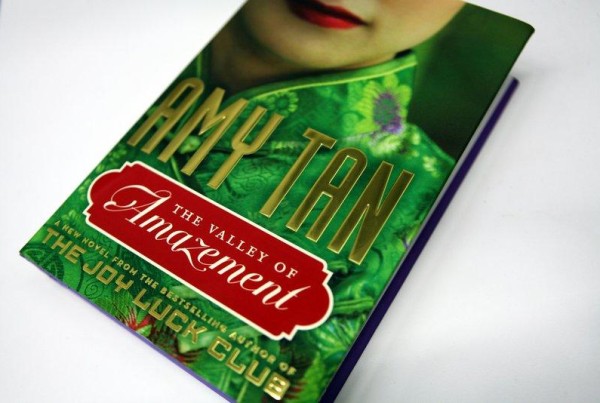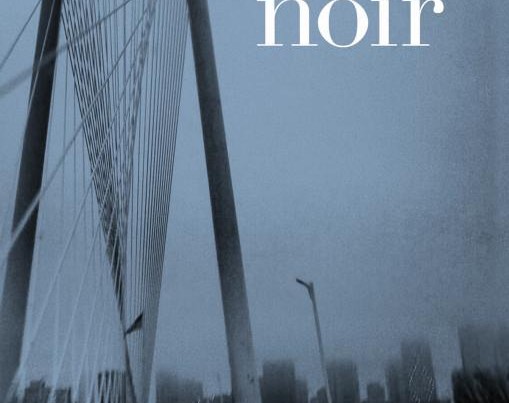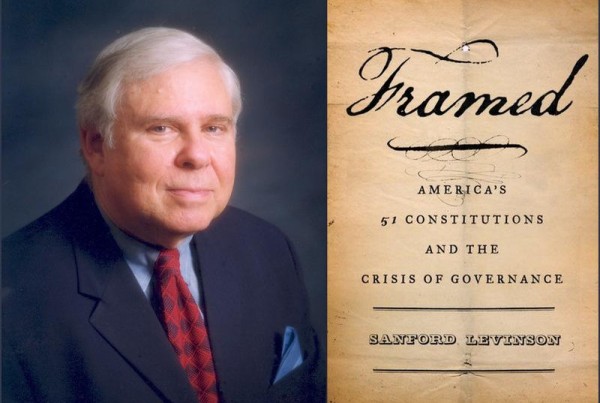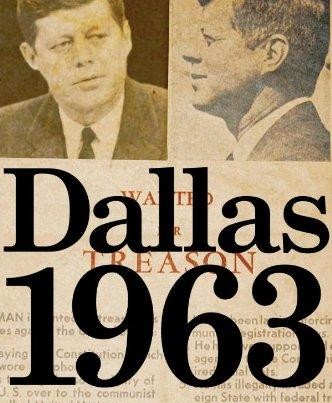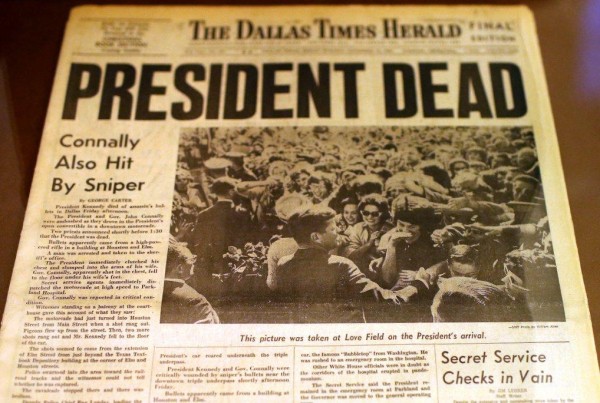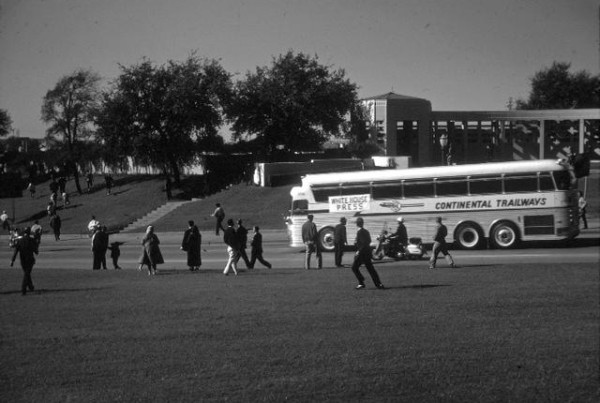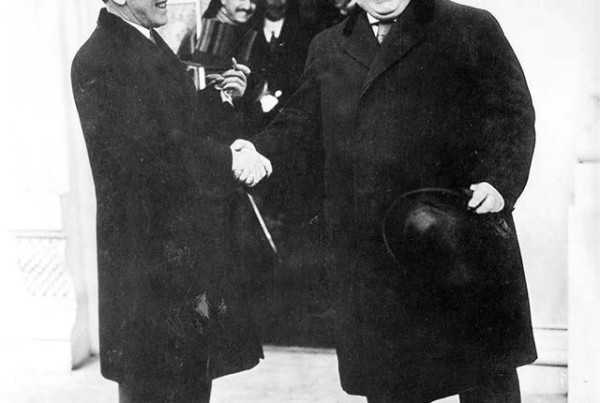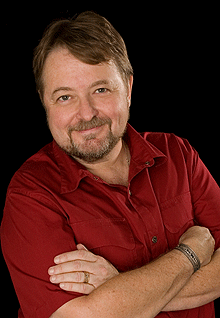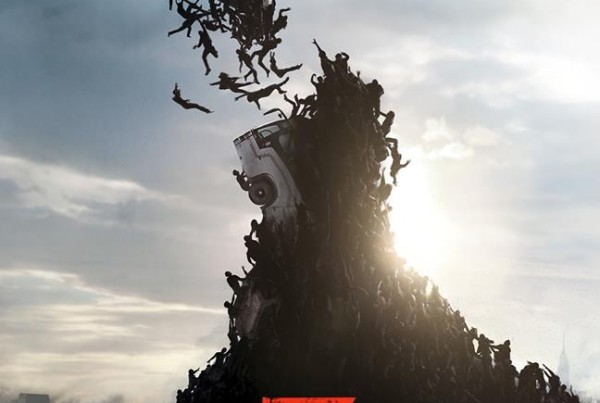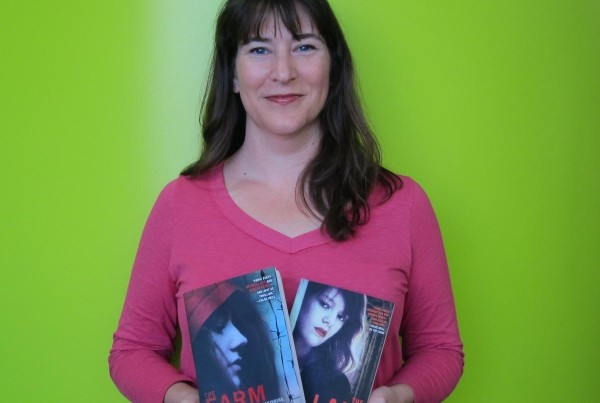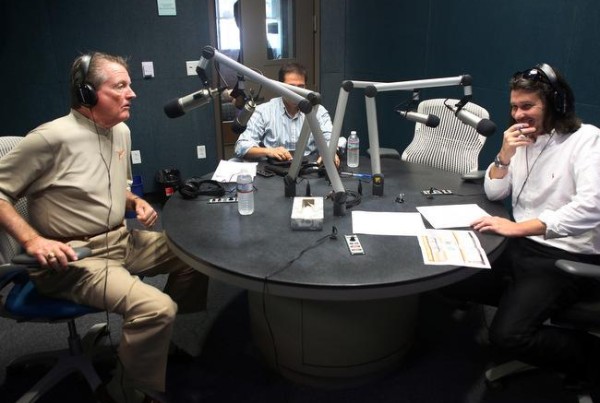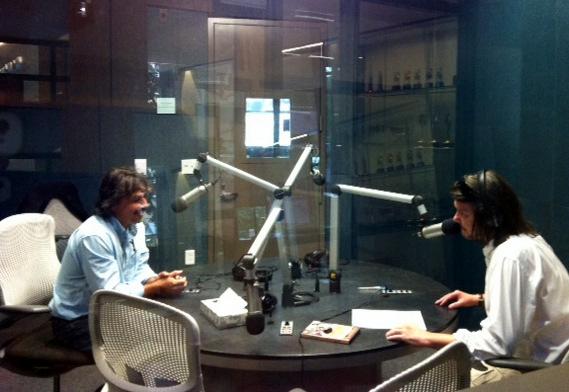In a recent editorial in the entertainment industry magazine Variety, the headline seemed to say what a lot of people have been thinking recently: TV needs to get over its inferiority complex.
“Breaking Bad.” “House of Cards.” “Mad Men.” “Homeland.” Those are just a few recent series made for the small screen which may be giving the big screen a run for its money and for critical acclaim.
KUT’s David Brown sat down with industry experts to find an answer to the following question: does size still matter?
KUT’s roundtable guests include:
- Rob Thomas, a screenwriter and producer, is best known for his work as the writer and director of the popular television series “Veronica Mars,” set to be released as a feature film in 2014.
- Alex Smith, also working on a new feature film, is the former creative director at UT Austin’sFilm Institute. He’s currently taking some time off from the world of academia to focus on the release of his new feature film, and to develop a few TV projects.
- Barb Morgan is the co-founder and executive director of the Austin Film Festival, where she says she’s seen first-hand the increase in TV’s popularity.
“It seemed like twenty years ago no one wanted to be in television,” Morgan says. “Now it seems like all the big guys in film want to be in television. From a writer’s perspective, there’s potential to make more money in something continuous and not waiting for the next project to come along.”
Beyond the financial prospects, Smith enjoys the chance to write longer character story lines. “You get to create a world that lasts,” Smith says. “There’s something extremely attractive for me coming from the feature film side. To have a cast of characters you really explore, you get to see where they go and don’t know where they’ll end up sometimes.”
This shift toward well-written, character-driven TV shows goes back to the 1980’s cop drama “Hill Street Blues,” according to “Veronica Mars” showrunner Thomas.
“That’s when writing started to become the star of television,” Thomas says. “The more networks that started doing original programming, the greater it was for writers because they could have a niche audience.”
In today’s world of original programming, there’s also a definite shift toward another small screen: the laptop, tablet or smartphone screen. Does this mean audiences are losing their appetite for the movie theater experience?
“People still have basic DNA need for stories, but they may be getting stories in smaller slices,” Smith says. “Still, the magic 95-minute thing that happens in a movie, that magic is never going away. But I do think that as people have these screens wherever they go, they want stories. They want to be connected to characters and want characters visiting them every week in their living room or on their commutes. As a storyteller, we can tell one big arc or a lot of little arcs that add up to a bigger thing.”
Looking ahead, the panel still sees room for growth in screens both large and small.
“I feel good about the movie industry,” Morgan says. “People still want to come out and have communal experience in a movie theater, but there may not be as many that we’re seeing. This may force studios to up their game. Studios will have to do better than superhero movies.”
You can listen to the complete interview in the Soundcloud player above.


